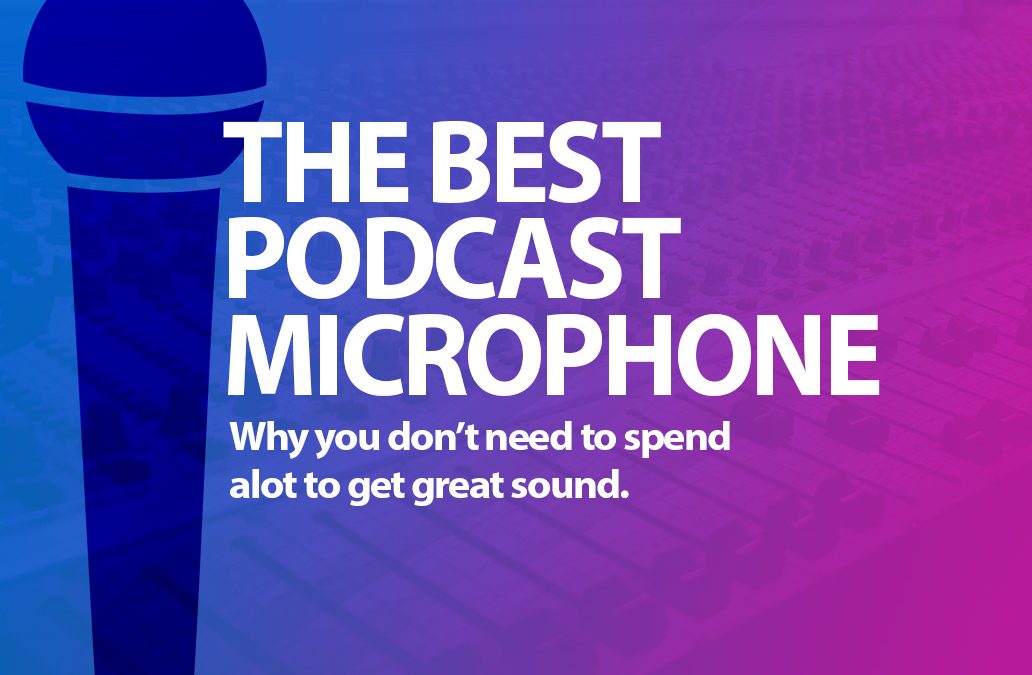One of the more common questions from people launching a podcast is “what is the best mic for podcasting?” While I’m not a huge fan of answering a question with another question, we can simplify this by asking a few more important questions like “what is the best mic for the human voice/spoken word?” and “is the best really..the best?” It’s all covered here! Plus, we’ll also cover what microphones to buy for podcasting.
What is the best mic for spoken word vocals (talking)?
For the voice over industry, where everything is about quality, producers and vo artists swear by $3,000 mics like the NeumannUA87 or the $999 Senheiser Shotgun. This fact, along with the common “you get what you pay for” line of thinking would make most of us think that to have great quality sound for our podcast, we better go drop a grand on a microphone. There is, however, one big caveat to using a top notch microphone.
Is the “best” really “the best”?
Because most of us are not recording our podcast in a space that was professionally designed or treated by an acoustic specialist, having a top of the line mic isn’t really going to give us the best result or even a dramatic difference in quality. There are some excellent videos on youtube that compare thousand dollar microphones to ones under $100, and without the factors mentioned above the results are often unoticable.
What “the best” means for Podcasting
For podcasting, we want to use a decent quality microphone that doesn’t pick up unnecessary background noise and will handle the unpredictability of our voice as we get louder and quieter during our podcast. If you already have a mixer/audio interface/ or something to connect between your mic and computer, here are some good microphones:
- Electrovoice RE20 (under $400) Radio Broadcast Standard
- Sure SM7B (under $400)
- Sure SM 58 ($109)
- Audio Technica AT2020 Condenser Mic ($99)
- Rode PodMic ($99)
- Sure SM48 (under $40)
If you are not planning on using a mixer or audio interface, check out these great quality affordable USB Microphones:
- Blue Yeti ($129)
- Blue Snowball ($50)
With today’s technology, you don’t have to spend a whole lot to get a great sound. It has more to with the room you record in and how you process your voice after recording. Effects like equalization can (in a lot of cases) make a more noticeable difference in your recordings sound than an extremely expensive microphone.

